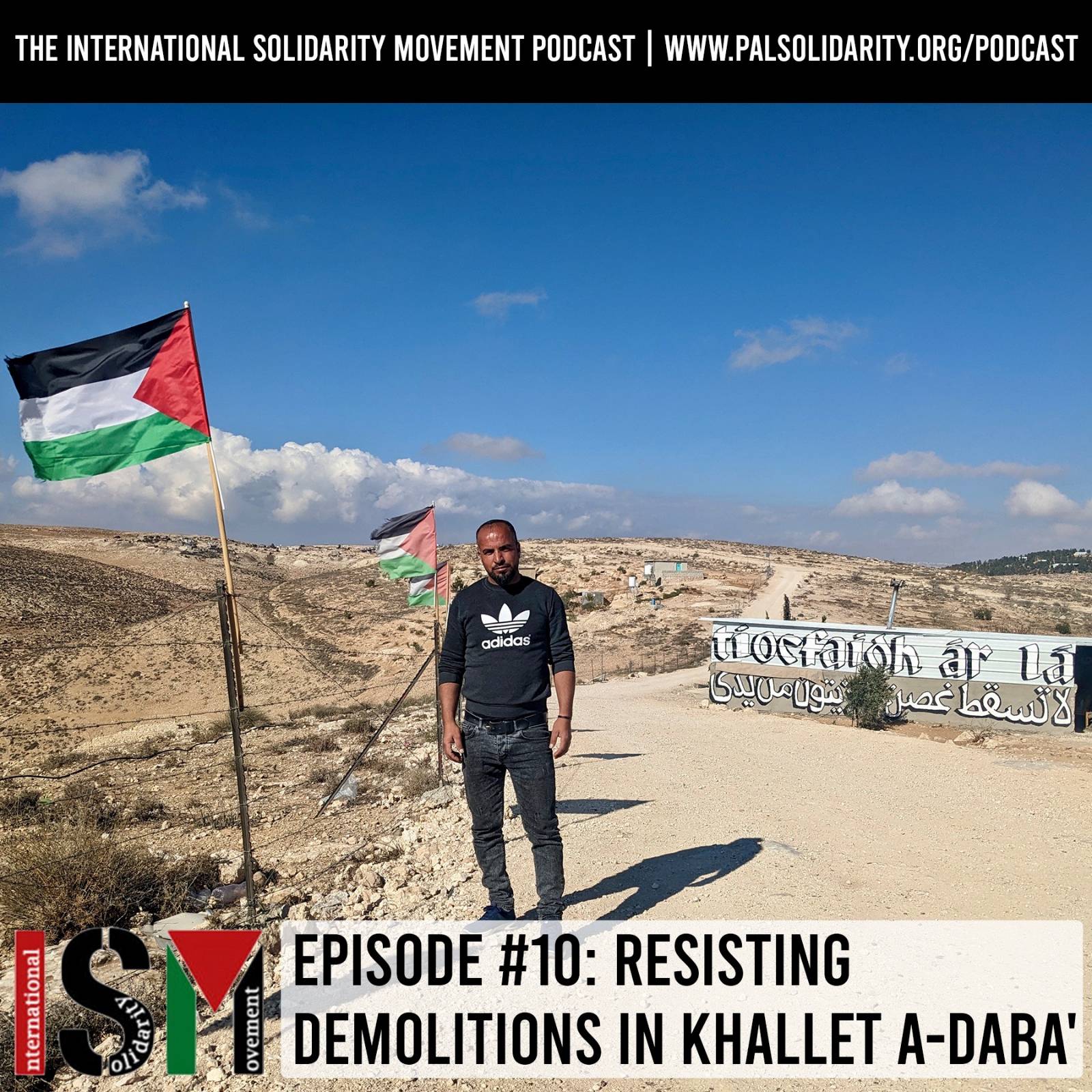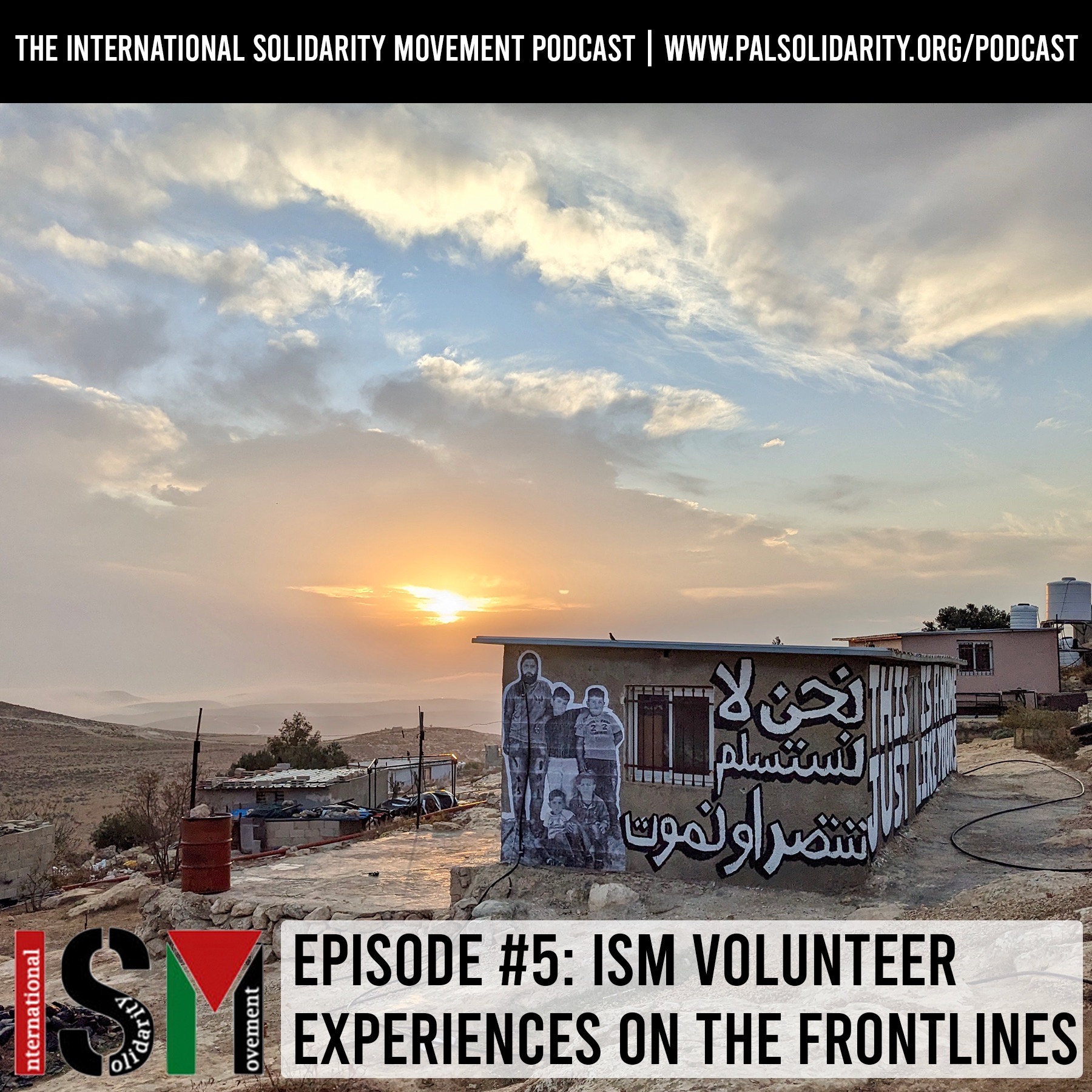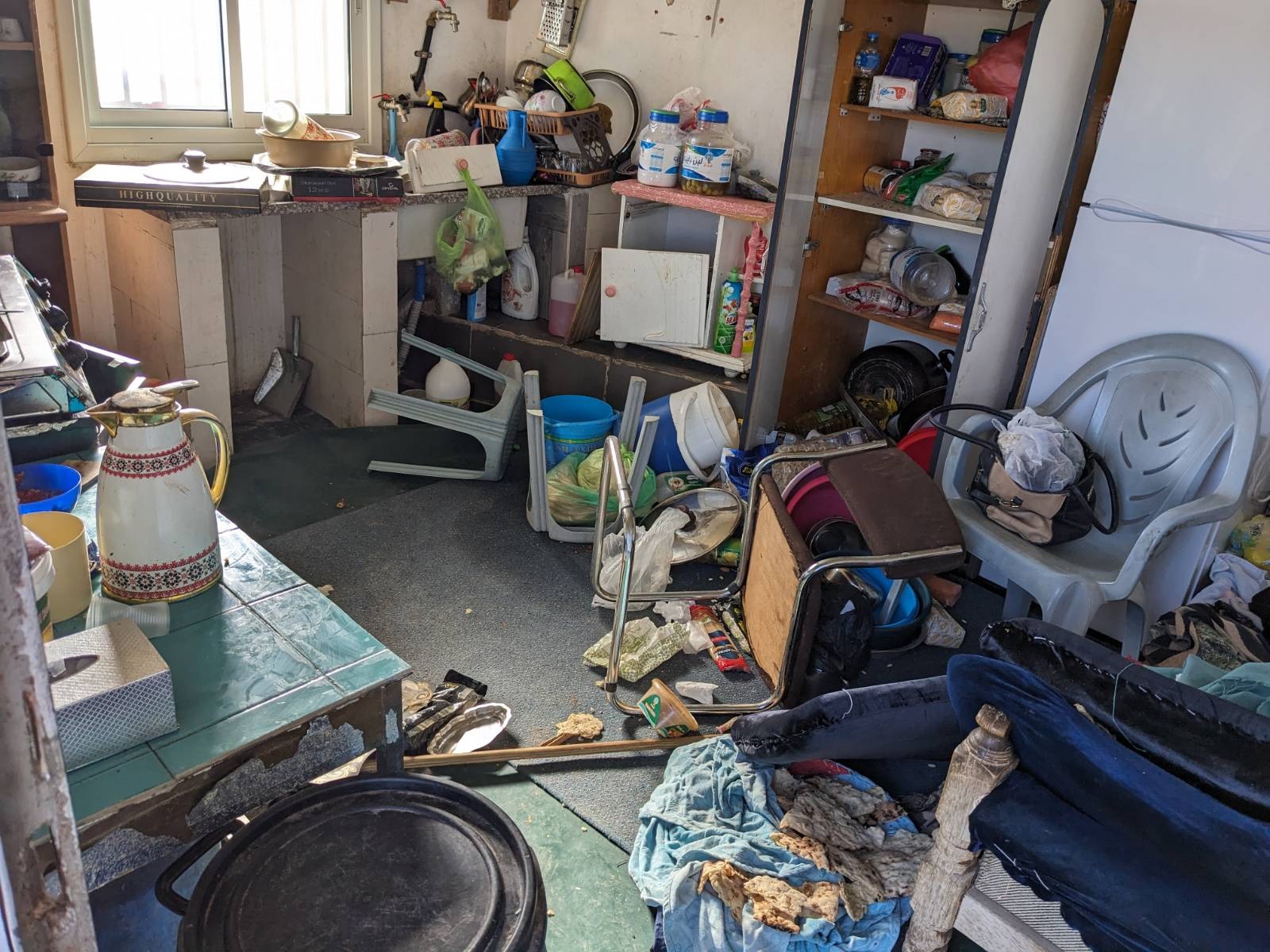Tag: Khallat al dabaa
-

International Solidarity Movement Podcast episode 10: Resisting demolitions in Khallet-Al-Daba’
In Episode Ten of our podcast we speak to Jaber from the village of Khallet al-Daba’, in Masafer Yatta, in the South Hebron Hills. The Israeli supreme court has ordered the destruction of several villages in Masafer Yatta, and the occupation wants to destroy Khallet al-Daba’ first. The residents of Khallet al-Daba’ remain steadfast in…
-

The International Solidarity Movement podcast episode five: ISM Volunteer Experiences on the Frontlines
In the fifth episode of the International Solidarity Movement podcast we are joined in the village of At-Tuwani by two ISM volunteers – Herbie and Maria – who both spent several months volunteering as internationalists in Palestine. They tell us from a personal perspective what it’s like to be an international volunteer in Palestine, and…

